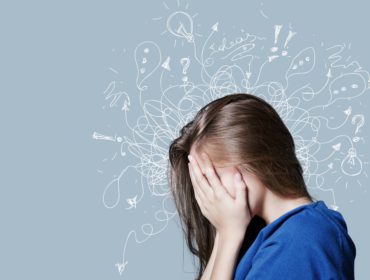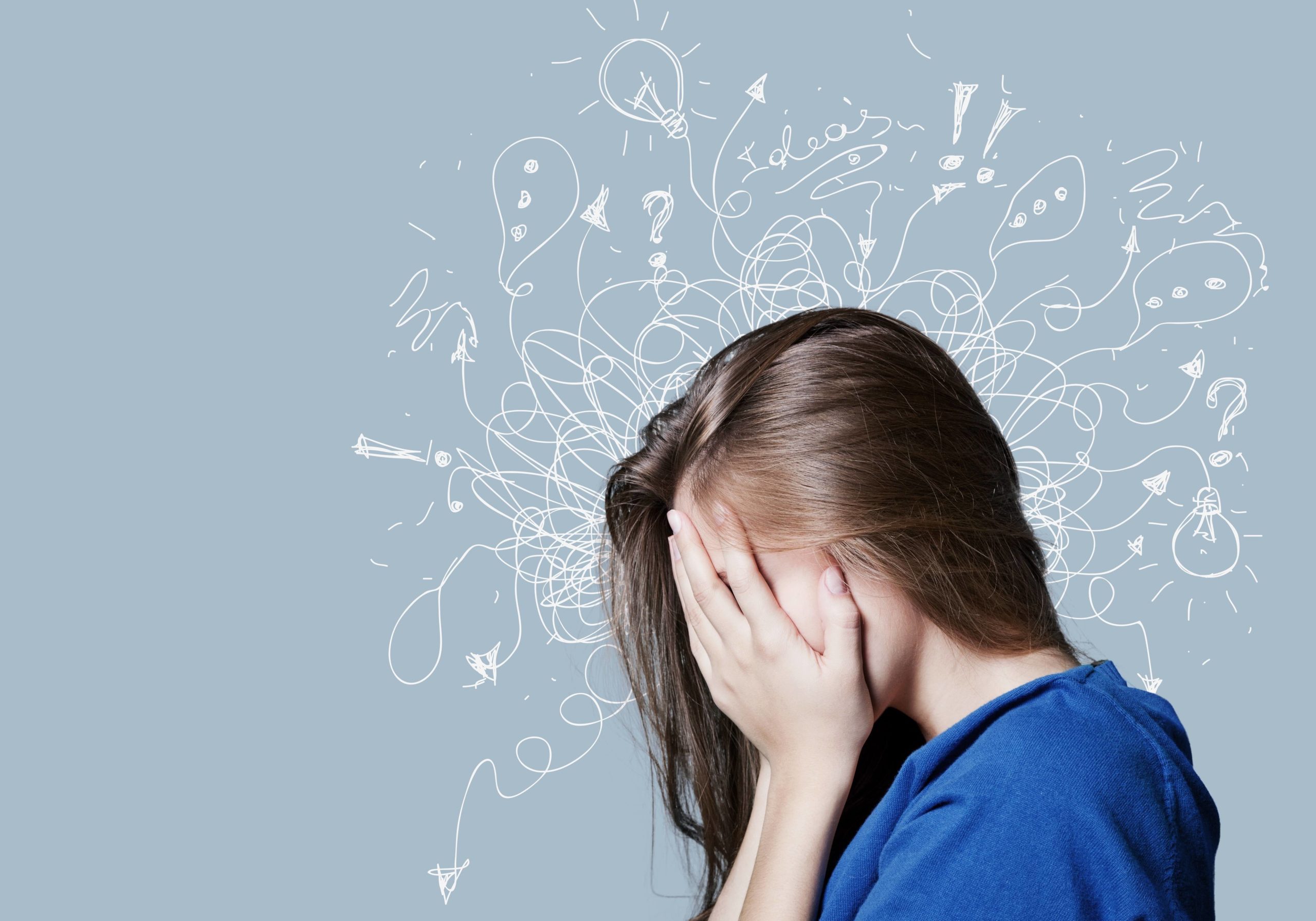

ANXIETY
What is anxiety?
Anxiety is characterized by fear or worry.
Experiencing occasional anxiety is COMPLETELY NORMAL and even natural.
People with anxiety disorders, however, frequently have intense, excessive and persistent worry and fear about everyday situations. They may have panic symptoms as well, including rapid breathing, sweating, trembling. These feelings of anxiety and panic interfere with daily activities, are difficult to control, are out of proportion to the actual danger, and can last a long time.
There are many types of anxiety disorders like agoraphobia, generalized anxiety disorder, separation anxiety disorder, social anxiety disorder, panic disorder, selective mutism, and others.
What are some symptoms of anxiety?
Common anxiety signs and symptoms include:
- Feeling nervous, restless or tense
- Having a sense of impending danger, panic or doom
- Having an increased heart rate
- Breathing rapidly (hyperventilation)
- Sweating or trembling
- Feeling weak or tired
- Trouble concentrating or thinking about anything other than the present worry
- Having trouble sleeping
- Having difficulty controlling worry
- Having the urge to avoid things that trigger anxiety
When should I get help for my anxiety?
At CAYA Care, we believe everyone can benefit from gaining the tools to manage fears and worries, especially as stressors and demands increase.
However, there are certain situations where we particularly recommend seeking psychological support:
- If you feel like you’re worrying too much and it’s interfering with your school, work, relationships or other parts of your life
- Your fear, worry or anxiety is upsetting to you and is difficult to control
- You feel depressed, have poor coping mechanisms (substance use, self harm, eating too little or much) or have other mental health concerns
- You think your anxiety could be linked to a physical health problem
- You are experiencing uncomfortable physiological symptoms (repeated panic attacks, heart racing, trembling, etc.)
How is an anxiety disorder diagnosed and treated?
To diagnose anxiety disorders, we will ask about your symptoms and medical history. We will ask about your anxiety symptoms as well as other related mental health symptoms, such as depression, PTSD, or substance use disorders. Then, we will compare your symptoms to the criteria in the Diagnostic and Statistical Manual of Mental Disorders (DSM-V) to provide an accurate diagnosis.
To treat an anxiety disorder, we will likely use Cognitive Behavioral Therapy (CBT). CBT is an evidence-based treatment that teaches you different ways of thinking and behaving. It can help you change how you react to the things that cause you to feel fear and anxiety. It may include exposure therapy. This focuses on having you confront your fears so that you will be able to do the things that you had been avoiding.
If you believe your or your child’s anxiety is interfering with daily life, please call 470-610-0414 to get a consultation with one of our psychologists – we can help!

